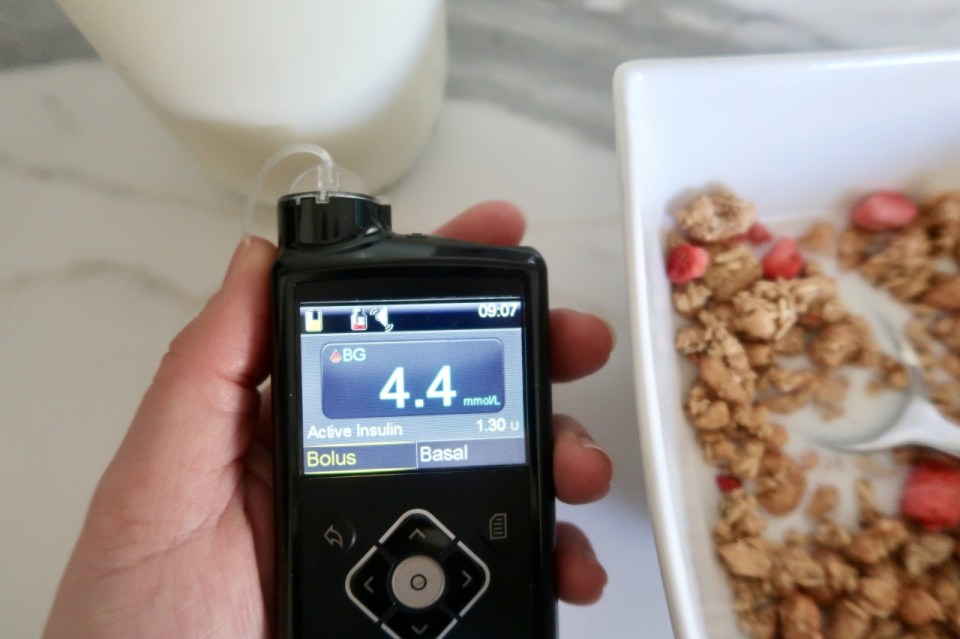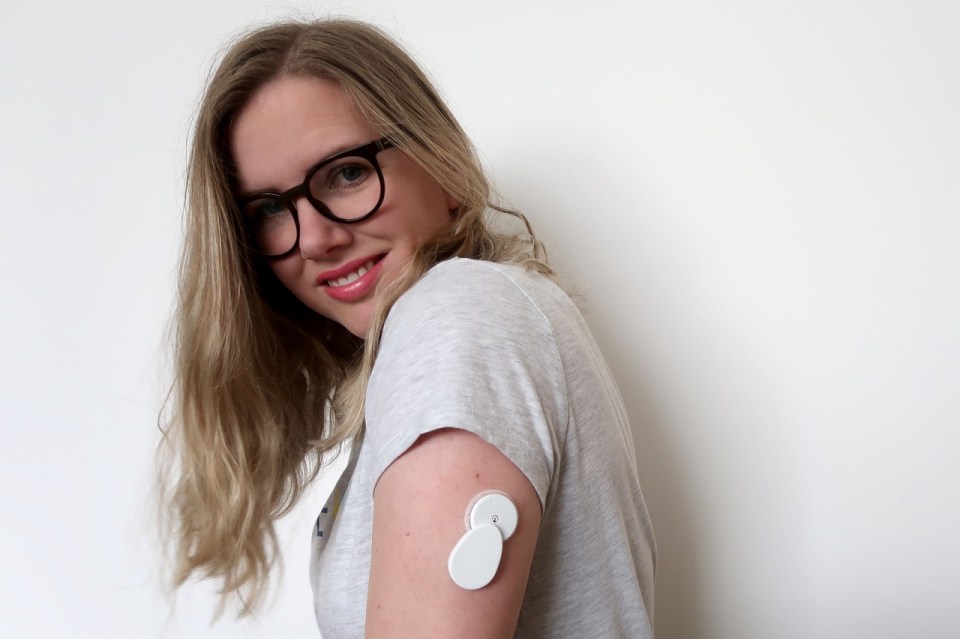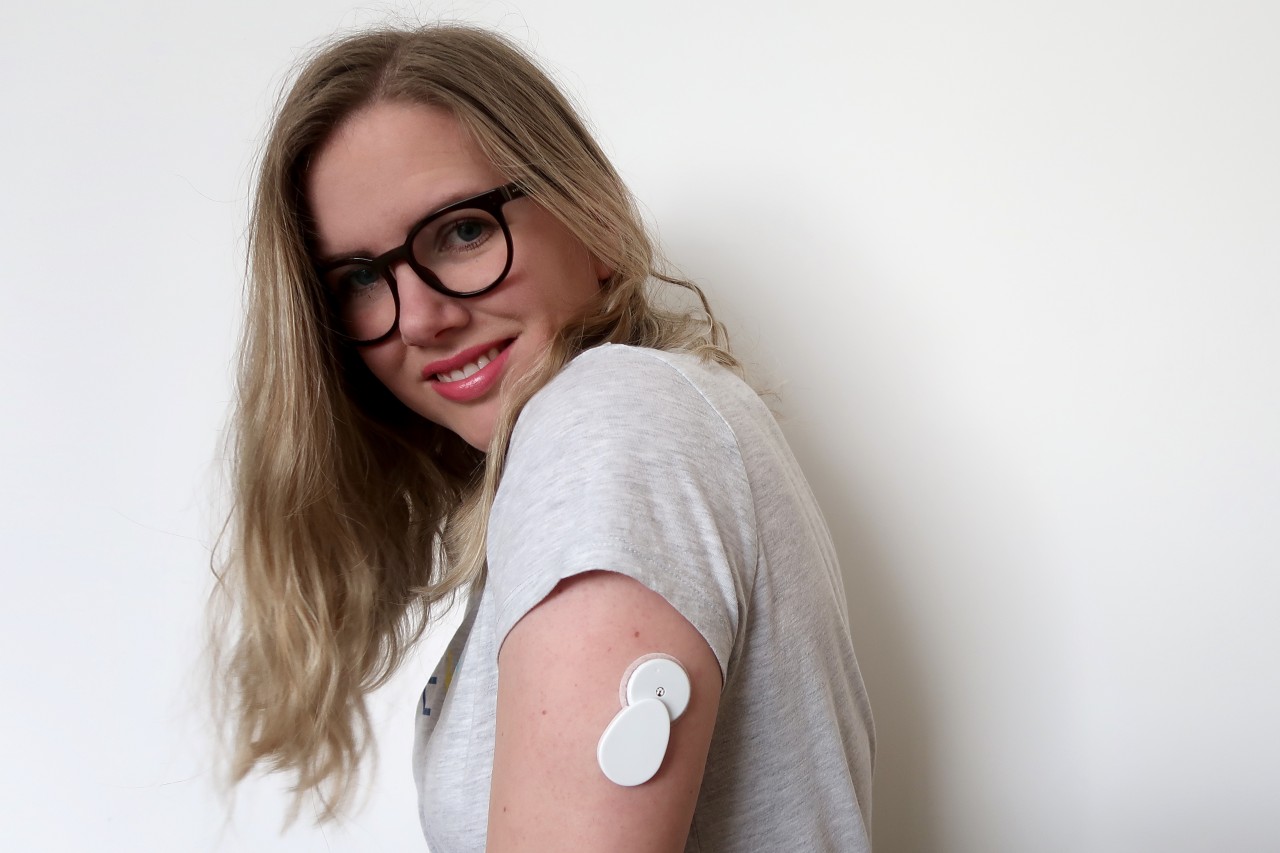Welcome to Living With… a new series I have created to highlight the reality of living with a variety of disabilities and chronic illnesses. The idea behind the series is to provide a space for others to share what it is like for them on a day-to-day basis, as well as how their health issues affect their lives. I share a fair bit about my own limitations, but wanted to open up my platform to others as well, given how varied disability and chronic illness is. Each post in the series will introduce you to somebody new, who will share their own experiences with you. This week we meet Kimberley, who shares what it’s like to live with Type 1 Diabetes.
About Kimberley

Tell me a bit about yourself
I am Kim, I live in the North East of Scotland with my husband and 2 young sons. I write a personal blog where I document my life with Type 1 Diabetes at home and as we travel around the world.
About your condition.
What is/are your condition(s) called?
I have Type 1 Diabetes. It is often confused for Type 2 Diabetes or referred to by it’s old name – Juvenile Diabetes
Can you explain what Type 1 Diabetes is, in a way that people who have never heard of it might understand?
Type 1 Diabetes is when your body no long produces insulin. Insulin is what breaks down glucose for use throughout your body, and so it has to be manually injected via injection or insulin pump. Quite simply, without injecting insulin daily someone with Type 1 Diabetes would die very quickly.
When were you diagnosed with Type 1 Diabetes?
I was diagnosed at 23 years old, on February 25th 2013. I am very lucky that I was not too unwell at diagnosis. I recognised the symptoms and went to the GP, but many are diagnosed very late resulting in hospital admissions, complications and sometimes they don’t survive.

What symptoms do you have to deal with in your day-to-day life? Does anything make them flare up?
Day to day my symptoms can vary wildly. It depends on exercise, stress, diet changes, the weather, technology malfunctions, hormones and so much more.
My symptoms of hypoglycaemia (low blood sugar) are:
- Sweating
- Shakes
- Nervous/anxious feelings
- Inability to concentrate
My symptoms of hyperglcaemia (high blood sugar) are:
- Extreme thirst
- Fatigue
- Tetchy/emotional
Everyone’s symptoms vary slightly but the general idea is the same.
How do you manage your symptoms? Medication, therapy, lifestyle changes etc.
An episode of low blood sugar needs to be treated urgently. This is done by have 15g of fast acting carbohydrate, such as jelly babies or glucose tablets.
An episode of hyperglycaemia is treated with more insulin, but this takes a while to take effect.
Impact on your life
How does Type 1 Diabetes impact your life as a parent, if at all?
The impact on life as a parent with Type 1 Diabetes starts right from before conception. A pregnancy with diabetes can be stressful, with extra scans and checks throughout all while maintaining extremely tight blood sugar control to give you baby the best chance. It can be draining both mentally and physically, but of course it is worth every second.
I had complications during my second pregnancy with diabetes, which led to a premature delivery to keep my son safe. It was far from ideal but I was very thankful to the NHS for the care they gave us both during that time.
Now that the boys are older the effect on my parenting has changed, but it is still there. I have to remind myself to put ME first sometimes, that treating an urgent low is more important and that they can wait. They are very accepting of my “medicine” and know that sometimes I do things that they can’t – like eat sweets at breakfast!

Chronic Illness and Mental Health
Does Type 1 Diabetes have an impact on your mental health? If so, how does it affect you?
Life with Type 1 Diabetes has a huge impact on mental health, largely due to the mental load. You are constantly watching, counting, calculating, deciding on your next move. You have to stay one step ahead and it doesn’t stop when you sleep with alarms to check blood sugars overnight. It is relentless, and anyone who claims it doesn’t affect them is kidding themselves.
Do you feel like you have access to the support you need to deal with this? If so, what does that look like? If not, what kind of support do you feel would help you?
I am really lucky with the health care professionals I see. I have easy access to my team of specialist nurses, who are quick to refer you to the psychologist if needed.
Awareness of Type 1 Diabetes
How much awareness do you think there is about Type 1 Diabetes within general society?
There is a huge amount of awareness of diabetes in general, but not Type 1 specifically. There is little understanding of what it entails, how you get it and the fact that it cannot be cured – especially not by just losing weight. We often have similar statements made to us day to day and it can get exhausting after a while.
What about within the medical profession? Do you find doctors have a good understanding of Type 1 Diabetes?
I see specialists who do really get it, so in that sense yes there is a good understanding. When I see other health care professionals I just state that I am confident in my own diabetes care and that is usually the end of that. They know the basics, but the details of what goes on day to day is beyond their knowledge base for most.
That said, I use a lot of technology to manage my diabetes and I do find that there is a lot of interest in that field.

Advice for others with Type 1 Diabetes
What advice would you give to somebody newly diagnosed with Type 1 Diabetes?
It doesn’t get easier, but you will get better at it. Managing Type 1 Diabetes is an art and there is no one size fits all solution. You find your own way but it takes time. It never becomes easy to inject yourself, but you get better at it. It’s never easy to count carbohydrates at a buffet, but with practice you get better at it.
What about advice for friends and family members of someone diagnosed with Type 1 Diabetes? How can they best support someone living with Type 1 Diabetes?
Be mindful of lows and highs. Just because they carry it well it doesn’t mean it isn’t hard. Don’t comment on their food choices, they know what their body can handle.
Find out more and follow Kimberley
If you want to find out more about Type 1 Diabetes, you can visit Diabetes UK. And if you have any concerns about any symptoms you may be having, please do make an appointment to see your GP.
To follow Kimberley and learn more about her own experiences with Type 1 Diabetes. you can visit her blog, or find her on Facebook, Twitter, Instagram, Pinterest, or YouTube.







No Comments